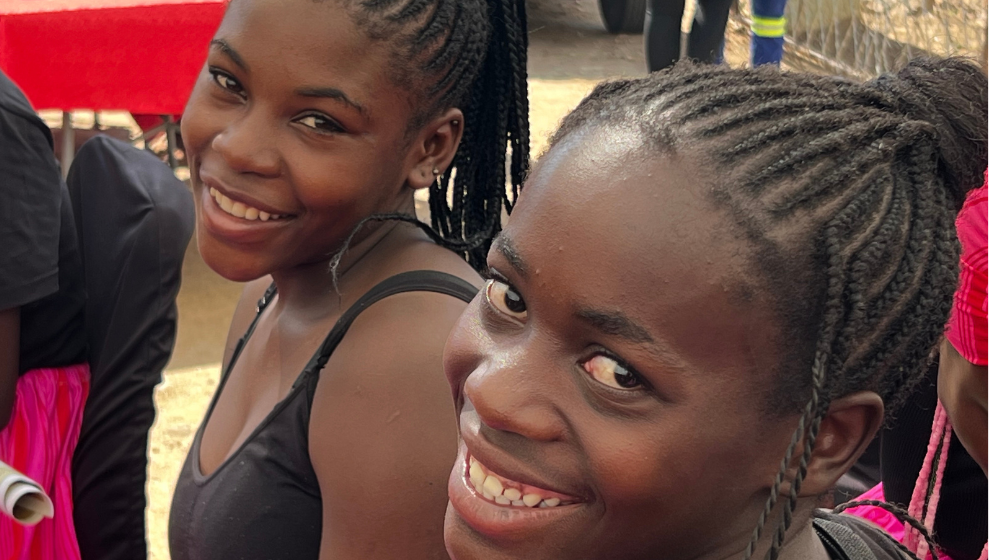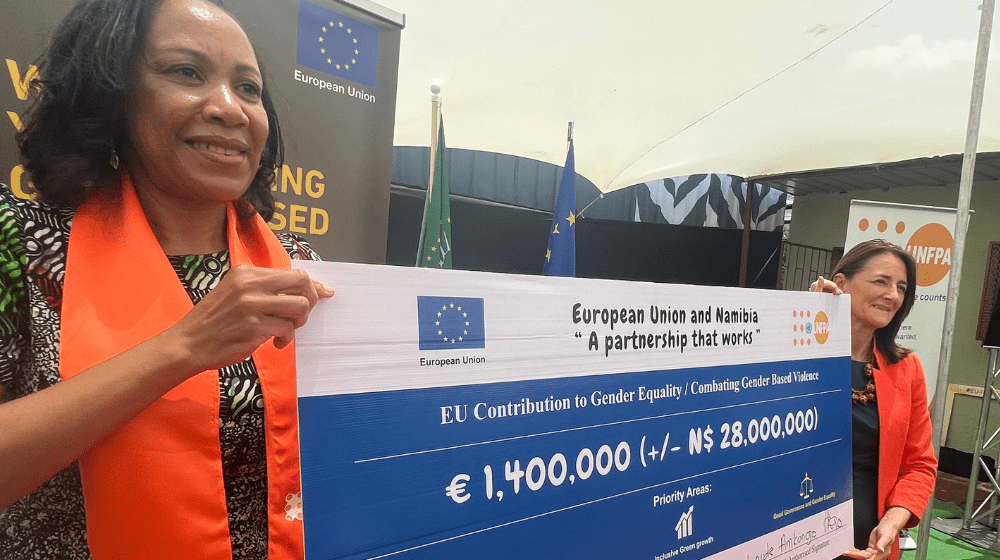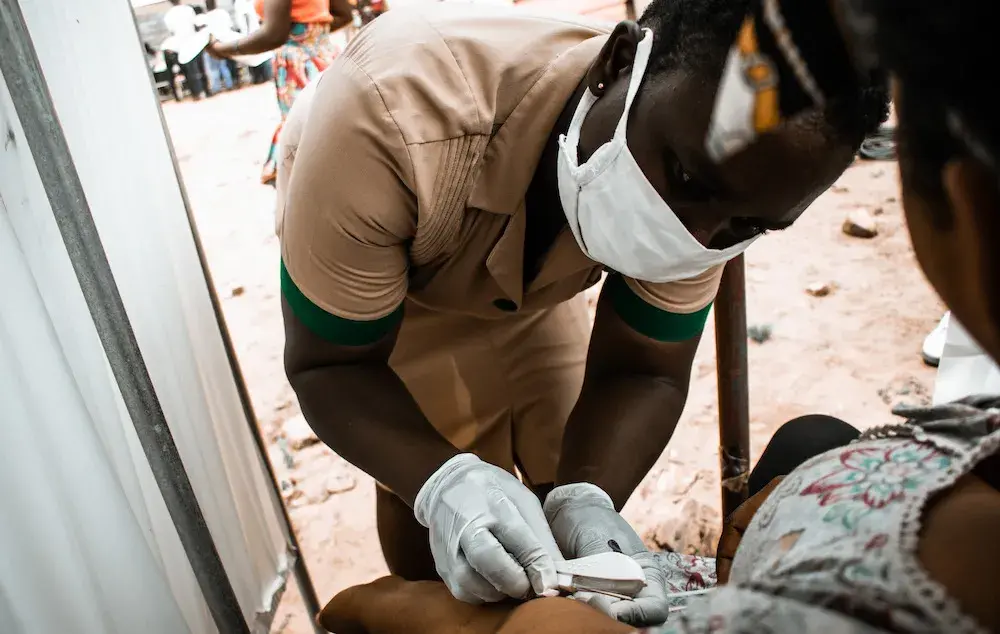
WINDHOEK, Namibia - In a significant step towards combating gender-based violence (GBV) in Namibia, the European Union (EU) and the United Nations Population Fund (UNFPA) officially signed a Contribution Agreement on 29 November 2023 at the Hope Initiative Southern Africa-Namibia (HISA) Community Centre.
The event, held in the heart of Okuruangava informal settlement in Windhoek, symbolizes a beacon of hope, marking the initiation of a partnership aimed at addressing one of Namibia's most critical issues, particularly impacting the lives of women and girls.
The EU, known for its dedication to protecting women and children from GBV through legislation, practical measures, and financial support, demonstrated this commitment through a generous contribution of EUR 1.4 million. This financial collaboration underscores a united front in the battle against gender-based violence, both at the national and sub-national levels.
Despite commendable achievements in human rights and gender equality, Namibia still faces persistent challenges with gender-based violence. The 2013 Namibia Demographic and Health Survey estimated that 33% of never-married women aged 15-49 have experienced physical, sexual, and/or emotional violence from their partner. Startlingly, 32% of adolescent girls aged 15-19 and 35% of young women aged 20-24 have experienced physical violence from a partner.
From 2012 to 2016, the Namibian Police identified the top five forms of violence in reported cases, including 22,174 assaults with grievous bodily harm, 18,054 common assaults, 2,839 rapes, 1,138 attempted murders, and 734 murder cases. Failure to address these issues could have serious consequences for society in the future.
UNFPA's findings project a worrying increase in intimate partner violence if left unaddressed, with numbers rising from 113,539 in 2020 to 127,697 in 2030.
H.E Ana Beatriz Martins, EU Ambassador to Namibia, emphasized in her remarks that gender equality is not just a moral imperative but a prerequisite for sustainable development.
The challenges we face are multifaceted, rooted in socially constructed gender roles, economic disparities, and harmful cultural norm.
"The challenges we face are multifaceted, rooted in socially constructed gender roles, economic disparities, and harmful cultural norms," she said.
"The initiative recognizes the need for a comprehensive, multi-level approach, involving national and subnational institutions, civil society, and communities. It aims not only to prevent gender-based violence but also to protect the rights of women and girls to live free from violence," she stated further.
Loide Amkongo, UNFPA Namibia Assistant Representative, expressed gratitude to the European Union, highlighting their commitment to uplifting the Namibian people, particularly focusing on the well-being and empowerment of women and girls.
“Today’s event signifies an important visibility milestone of a crucial partnership between the EU and UNFPA, especially during this period when we observe the 16 days of activism against GBV,” said Amkongo,
Amkongo extended gratitude to the Namibian Government, particularly the Ministry of Poverty Eradication, Gender Equality, and Social Welfare, and various civil society organizations for their support and collaboration in designing and implementing the program.
The program is scheduled to run until 2027 and will be implemented in five targeted regions, namely Zambezi, Ohangwena, Khomas, Kunene, and Omaheke regions.





